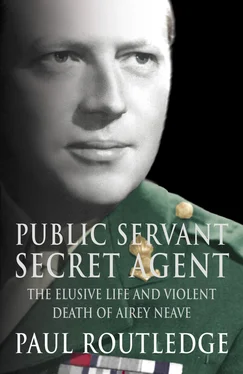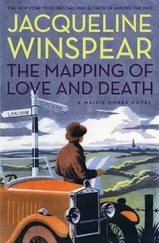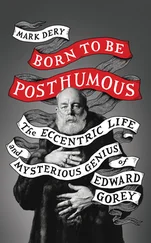1 ...6 7 8 10 11 12 ...23 The Myrmidons also gained an eccentric reputation for literary interests, chiefly through Max Beerbohm and his friends who had been members in the 1890s. The Myrmidons are assumed to be the model for the Junta in Beerbohm’s gentle, witty Oxford novel Zuleika Dobson. In spite of being known as the ‘most virile’ of Merton’s clubs, they also had a cultured side, which showed itself most strongly in amateur dramatics. The Myrmidons scorned OUDS – the self-esteeming Oxford University Dramatic Society – in favour of Merton Floats, the college’s own theatre group, founded in 1929 by two undergraduates, Giles Playfair and E.K. Willing-Denton, the latter a ‘prodigiously extravagant and generous’ young man. This was, Playfair later recollected, a time of festive teas, luncheons, dinners, suppers and moonlight trips on the river followed by climbing over the wall into college. Willing-Denton, who spent his entire allowance in the first month, was noted for his ten-course luncheons. He and Playfair persuaded actors of the calibre of Hermione Baddeley to come down to Oxford, and Merton Floats enjoyed a succès d’estime in the mid-war years when the social scene was at its height. In 1936, Neave was secretary of Floats and his friend Merritt was president. Sleeman was the grandly titled front-of-house manager. They put on two plays: In The Zone , a one-act play by Eugene O’Neill set on the fo’c’sle of a British tramp steamer in 1915, in which Neave played the role of Smitty; and Savonarola , a play of the 1890s attributed to Ladbroke Brown, in which Neave appeared as Pope Julius II. Neave also found time to make three speeches at the Oxford Union, of which no record remains. On one of these occasions he found himself debating the merits of the previous week’s motion.
It was an altogether engaging life. Neave later admitted that he did little academic work at Oxford and was obliged to work feverishly at the law before his finals in order to get a degree. He graduated in 1938 with a third in jurisprudence and a BA. ‘The climax of my “Oxford” education was a champagne party on top of my college tower when empty bottles came raining down to the grave peril of those below,’ he wrote. 8 He remained thankful in adult life for the kindness and forbearance shown by his college during those profligate years. Life was never to be so insouciant again.
In the febrile pre-war atmosphere of the 1930s, Oxford shared in the political polarisation that shook society at large. As early as February 1933, months before Neave went up from Eton, the Oxford Union carried a motion ‘This House will under no circumstances fight for King and Country’. The vote was unambiguous: 275 to 153. Most undergraduates thought no more about their casual pacifism, but Winston Churchill expressed nausea at this ‘abject, squalid, shameless avowal’. ‘One can almost feel the contempt upon the lips of the manhood of Germany,’ he added disdainfully.
Neave was not among the fainthearts. Unlike most of his university contemporaries he had seen the Nazis at first hand and did not like what he saw. However, unlike some of his contemporaries – including Denis Healey, a future Defence and Foreign Secretary – he did not embrace the fashionable left. He was emphatically a patriot and willing to fight for King and Country. Furthermore, he believed that a war with Germany was inevitable. In 1933, while still at Eton, Neave had written a prize-winning political essay analysing the probable consequences of Hitler’s rise to power and predicting the likelihood of war. Leonard Cheshire recalled: ‘On arriving at Oxford he bought and read the full works of Clausewitz, and when being asked why, answered that since war was coming, it was only sensible to learn as much as possible about the art of waging it.’ 1 To this alarming intellectual precocity, Neave, still in his teens, added military intent. While those about him flirted with the Young Communist League, he joined the Territorial Army at the tender age of nineteen. ‘It was fashionable in some quarters to declare that no one but a very stupid undergraduate would fight for his King and Country,’ he remembered later. ‘To be a Territorial was distinctly eccentric. Military service was a sort of archaic sport as ineffective as a game of croquet on a vicarage lawn and more tiresome.’ 2 He despised the phrase ‘playing at soldiers’, and took some comfort in the fact that those he contemptuously referred to as ‘decadents, fantastics and intellectuals’ were fighting for their very lives within a few short years.
In the meantime, his reading of Clausewitz was of little help on manoeuvres with an infantry battalion in the TA summer camp on the Wiltshire Downs. Neave remembered how he lay blissfully in the grass, a wooden Lewis gun by his side, listening for the sound of blank cartridges but concentrating more on the butterflies, identifying a small copper, a fritillary and a clouded yellow as his platoon clowned around on the edge of a chalk pit. ‘We were not prepared for war. We never are,’ he reflected. His daydreaming was rudely interrupted by a full brigadier kitted out for the First World War who shouted ‘Lie down there!’ as Neave began to stand up, feeling ridiculous in plus fours and puttees covered in chalk and grass. The imaginary conflict continued under a blazing sun. In the post-mortem on this ‘battle’, the brigadier raged at Neave, accusing him of choosing an exposed position for his men. Why had he allowed his left flank to go unprotected? Neave answered, with more nerve than diplomacy: ‘There was an imaginary platoon on his left flank, sir, I posted it there.’ The brigadier was deflated and Neave was a popular subaltern in the mess that night. If he was aware that such manoeuvres were poor preparation for the gathering storm he was nonetheless proud to receive in 1935 a registered envelope from the War Office informing him that His Majesty King George V sent greeting to his trusted and well-beloved Airey Neave and appointed him to a commission as second lieutenant in his Territorial Army.
After graduating, Neave went up to London to read for the Bar. His first placement was in 1938 in the office of an old-fashioned solicitor’s in the City. Here he learned the basics of law in action. It had its entertaining moments. One summer evening found him, kitted out in bowler hat and umbrella, accompanied by a junior clerk, serving an injunction on a group of thespians in a church hall in Cricklewood, north London. The play, by a local author, libelled Neave’s client and the High Court injunction he served on the producer forbade its performance. The producer read the long legal document tied with green string, a familiar sight to journalists but evidently a great shock to amateur performers. ‘You can’t do this to us,’ he expostulated. ‘It’s against the law!’ Echoes of this farcical scene resounded in Neave’s memory years later, when he was called on to serve the indictment to Nazi war criminals at Nuremberg.
Neave moved on to become a pupil in a barrister’s chambers in Farrar’s Building in the Temple, close to Temple Church, but beneath the superficial gaiety of the capital and the debutante season, war was rapidly approaching. In the late summer of 1939, a matter of days before war was declared, Anthony Eden, Minister for War, announced on the radio a doubling of the size of the Territorial Army. Airey and his cousin Julius were listening to the broadcast at Mill Green Park. Airey immediately proposed that they go and join up and the pair cycled off to the local Drill Hall in nearby Fryerning Lane. Julius Neave remembers that the recruiting officer said ‘That’s very nice of you. So, would you like to be soldiers, or officers?’ They replied: ‘Given the choice – officers!’ Both had what was known as a ‘Certificate A’, meaning that they had passed a proficiency test with the Officer Training Corps at school. As a second lieutenant in the TA, Neave would quickly have been called up in any event.
Читать дальше












